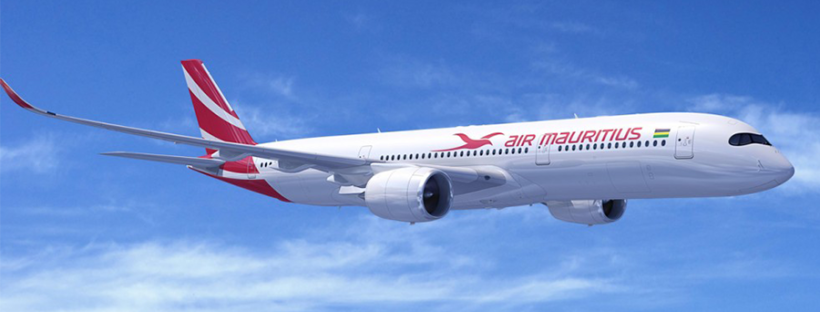We are frequently asked by our clients around the world as to the situation in Mauritius. We go through succinctly below the restrictions that there are in place, how COVID has affected business in Mauritius, and where the opportunities in Mauritius currently are.
Lockdown and COVID
Unfortunately Mauritius has just entered a 2 week lockdown as of 10.03.21 with several cases on the island. The last lockdown in Mauritius ended in May 2020 and as a result of that and the quarantine when coming into Mauritius, there has been almost no organic spread since then until now. Mauritius was often described as COVID-safe. This has meant that the children went to school, and everyone else continued going to work, shops, restaurants, cinemas, theatres, bars and beaches. People were still expected to wear a mask in public but ultimately it was a very enjoyable life. Once the current lockdown ends, as we are on a remote island, we expect that we will go back to the previous freedoms again soon.
There is a 2 week quarantine in a Mauritian hotel for all those flying in from abroad and this has been in place since the borders re-opened last summer. You are confined to a room, although if you spend enough money you can get private villas with swimming pools and gardens to spend your two weeks which makes a family stay more bearable.
The COVID effect on business
Tourism
Needless to say that the restrictions put in place around the world including the quarantine in Mauritius have affected certain industries significantly. As one would expect tourism and all ancillary industries have suffered. There has been a huge increase in Mauritians and expats in Mauritius using the local hotels but this is not enough to sustain the industry for too long. Tourism is a large part of the Mauritian economy and so the country suffers without it.
Hospitality
Without tourists the hospitality industry has suffered. As it has been life as normal for most of us living here, many restaurants, bars and gyms are still being used and many companies are flourishing who have adapted to the change in clients, and the demand for deliveries and online ordering. The hospitality industry still however craves the return of the tourists.
Offshore business
There continues to be demand for company, fund and trust formation as Mauritius remains a stable base, especially for African-centred investment and trade. One does not need to travel to Mauritius to set up a company nor for bank accounts meaning that the Mauritius global business sector continues to thrive and remain relatively unaffected by COVID-19. Many of the special FSC licences are proving to be very popular at the moment from Investment Dealer and Investment Adviser Licences to PSPs and Management Company Licences.
Property
There continues to be a significant demand for property in Mauritius, predominantly from the French and South African markets. There are many buyers on hold until they can visit the properties here but there have been many sales that have gone through by seeing property virtually using good local partners. The fact that purchasing property in Mauritius gives permanent residence to investors and their family if they spend over USD 375,000 in certain approved developments, means that there is a real temptation for foreigners to consider having a second home/ residence, a diversified property portfolio or to actually come and move to Mauritius. Ultimately it is a small island and property has the long-term potential of Singapore. One can even buy land in smart cities as a foreigner and build your own property since the last budget but it is only temporary so buyers are moving quickly.
Relocation
Linked with the property, there are many people moving over to Mauritius at the moment, despite the 2 weeks quarantine. The simplicity of the ‘Premium Visa’ to come and live in Mauritius to work remotely or retire, coupled with the turbulent risks and related restrictions there are around the world, the tropical island with its thriving business community juxtaposed with the beaches and outdoor life is a tempting prospect. Others, particularly from South Africa are making permanent moves including financial emigration and are happy to handle the quarantine to make a life for their families here.
Opportunities
There are clear investment opportunities in Mauritius as the island will always appeal to tourists and expats, there is limited land available and the democratic island remains a safe, stable and beautiful place to live and work long-term. The rupee has suffered a little so there has rarely been a better time to invest in businesses here as many viable companies are suffering due to the lack of tourists and investors can find opportunities from hotels and restaurants to banks and management companies.
Conclusion
Mauritius has been affected through its lack of tourists, but there remain great opportunities in the global sector, to relocate here and avoid significant COVID risks, as well as invest in the future with properties and business still as relevant as they will always be. We are happy to arrange a call or Teams/ zoom, or email us to ask any questions you have.
About THE AUTHOR
Philip Tsalikis is a practising UK barrister based in Mauritius and registered there as a foreign lawyer. He is the co-founder of TBI Mauritius, a Mauritian consultancy firm with a global reach and network. TBI assists individuals and businesses with their investment, setup and operations in Mauritius and throughout Africa, as well as properties, relocation, permits and residence.
Disclaimer
Our aim with our articles is to make them digestible. We keep them short and relevant but do not update them. They are not designed to be legally relied upon. This article contains no legal, tax or financial advice, all of which should be sought from relevant professionals.
Please contact us via our website, via email to info@tbimauritius.com or via the form below.
